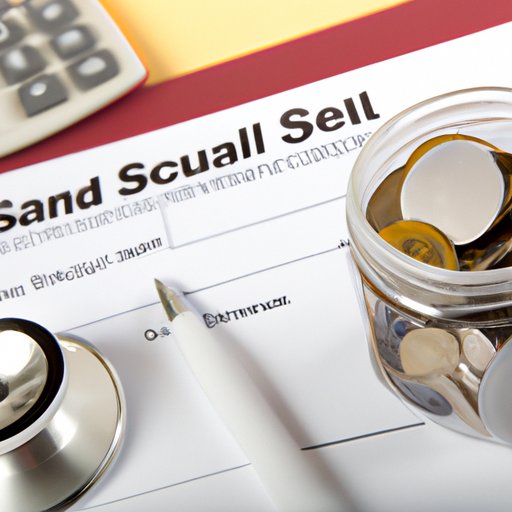Introduction
A Health Savings Account (HSA) is a type of savings account that allows individuals to set aside pre-tax money to pay for qualified medical expenses. By utilizing an HSA, people can save money on their taxes while also building up a fund to help pay for healthcare-related expenses. This article will explore what you can use your HSA for, as well as how to take advantage of the benefits of an HSA to maximize your savings.

Exploring Eligible Expenses for Health Savings Accounts
HSAs are designed to cover qualified medical expenses. These include expenses related to the diagnosis, cure, mitigation, treatment, or prevention of disease, and the costs for treatments affecting any part or function of the body. Some examples of eligible expenses include doctor visits, hospital stays, prescription medications, dental care, vision care, and more. In addition, some non-medical expenses may be covered, such as transportation costs and weight loss programs prescribed by a physician.
It’s important to note that not all medical expenses are eligible for HSA coverage. Non-qualified medical expenses include cosmetic procedures, over-the-counter medications, health insurance premiums, and long-term care insurance premiums. Additionally, HSAs cannot be used to pay for health insurance premiums, even if you are unemployed, self-employed, or between jobs.

Maximizing the Benefits of a Health Savings Account
In order to take full advantage of the benefits of a Health Savings Account, it’s important to understand how contributions and withdrawals work. Contributions to an HSA are made with pre-tax dollars, meaning you don’t have to pay income tax on the money you put into the account. Withdrawals from an HSA, however, are subject to income tax if the money is not used for qualified medical expenses. It’s also important to note that HSAs are portable, meaning that the funds can be used to pay for medical expenses regardless of where you live or work.
Employer contributions to HSAs are another great way to maximize the benefits of the account. Employers can make contributions to employees’ HSAs on a pre-tax basis, which can be used to pay for qualified medical expenses. Additionally, employers can match employee contributions up to a certain amount, allowing employees to save even more money.
Utilizing Tax Advantages with a Health Savings Account
One of the major advantages of a Health Savings Account is its tax benefits. Contributions to an HSA are made with pre-tax dollars, which means they are not subject to federal income tax. Additionally, withdrawals from an HSA are not subject to federal income tax if the money is used to pay for qualified medical expenses. Furthermore, any interest earned on HSA funds is also tax-free.
Understanding the Difference between HSA and FSA
It’s important to note the difference between a Health Savings Account and a Flexible Spending Account (FSA). Both accounts allow individuals to set aside pre-tax money to pay for qualified medical expenses, but there are a few key differences. FSAs have a “use it or lose it” policy, meaning that any money in the account at the end of the year is forfeited. HSAs, on the other hand, do not have this policy, and any money left in the account can be carried over to the next year.
Investing Your Health Savings Account Funds
Another way to maximize the benefits of a Health Savings Account is to invest the funds. Many HSAs offer the option to invest in stocks, bonds, mutual funds, and other investments. Investing your HSA funds can help you grow your savings faster, but it’s important to understand the risks involved. Before investing, be sure to research the different types of investments available and determine which ones are right for you.

Using a Health Savings Account to Cover Medical Costs
Using an HSA to cover medical costs is a great way to save money on taxes and build up a fund to pay for future medical expenses. To get the most out of an HSA, it’s important to estimate your medical expenses for the year and budget accordingly. That way, you’ll know exactly how much to contribute to your HSA each year and how much you can withdraw when the time comes.
Conclusion
Health Savings Accounts are an excellent way to save money on taxes and build up a fund to pay for medical expenses. By understanding what you can use your HSA for and taking advantage of the tax benefits, you can maximize your savings and ensure you are prepared for any unexpected medical costs. Additionally, you can invest your HSA funds to help grow your savings even faster.
In summary, Health Savings Accounts are a great way to save for medical expenses and take advantage of tax benefits. By exploring eligible expenses and maximizing the benefits of an HSA, you can ensure you are prepared for any medical costs and make the most of your savings.
(Note: Is this article not meeting your expectations? Do you have knowledge or insights to share? Unlock new opportunities and expand your reach by joining our authors team. Click Registration to join us and share your expertise with our readers.)
